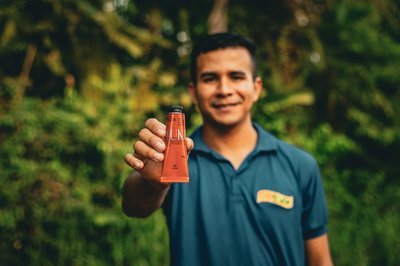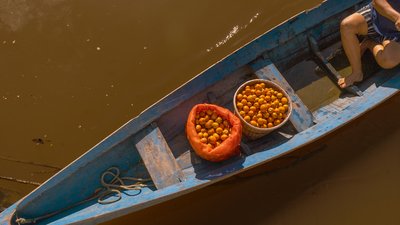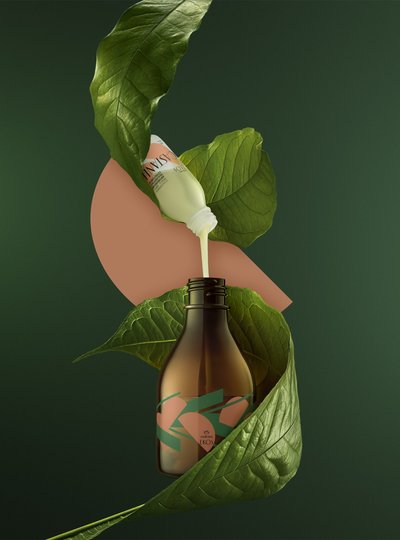
Circularity and
Packaging
Eco by design
We have been steadfast in our commitment to circularity and sustainable packaging, aiming to achieve measurable and positive environmental and social impact. Our goal is to ensure that 100% of our packaging is either recyclable, reusable, or compostable. By 2023, we reached 86.2%, building on the 82.3% achieved in 2022.
Recognizing that most of our product's environmental impact can be determined during the design phase, we prioritize eco-friendly decisions such as material selection, recyclability, refillability, and compostability. In addition, we aim to incorporate at least 50% recycled plastic materials into our plastic packaging, often through fair trade schemes with waste pickers or social cooperatives, ensuring better working conditions and fair prices for collected plastic waste.
We also prioritize biodegradability in formulas, achieving a minimum of 95% biodegradability in our products. Moving forward, we will utilize the science-based Product Environmental Footprint (PEF) methodology to measure the full environmental impact of our formulas across their lifecycle, from sourcing ingredients to consumer usage and beyond.

Going beyond a "no harm" or "zero harm" mindset, we seek to generate measurable, positive impacts for society.
Working together to measure impact
In collaboration with around 70 global beauty and personal care companies, including industry leaders like L’Oréal, P&D, Unilever, Beiersdorf, J&J, and Shiseido, Natura &Co collaboratively established the EcoBeauty Score consortium (EBS) to develop a scoring system for communicating environmental impact to consumers. The complexity of evaluating environmental impact in the cosmetics industry, given the vast array of ingredients and geographical variations, necessitates a robust methodology and data-driven approach.

Over the past two years, the EBS consortium has laid the groundwork, including developing the methodology, database, and IT prototype tool. Currently, we are conducting a large-scale pilot involving more than 4,000 products from consortium members to refine the scoring scales, with plans to launch the system in 2024. The pilot includes testing products in strategic countries such as the US, China, France, and Brazil to gauge consumer understanding, preferences, and feedback regarding the label.
The insights gained from the EBS pilot will be integrated into our internal tools, allowing us to optimize our portfolio to minimize environmental impact. Additionally, the EBS methodology will facilitate the adoption of circular models and support substantiated green claims. We are actively advocating for the approval of the framework under the new green claim directive, underscoring our commitment to transparent and environmentally responsible practices within the industry.
Regeneration: the new frontier
We are committed to embracing circular and regenerative solutions to address pressing challenges and drive positive systemic change, fostering healthier ecosystems and more resilient societies. Going beyond a "no harm" or "zero harm" mindset, we seek to generate measurable, positive impacts for society.
Regeneration is a dynamic concept with immense potential to combat climate change and biodiversity loss while reducing social inequalities and enhancing wellbeing. It entails promoting biodiversity, restoring ecosystems, and harnessing their capacity to provide crucial environmental services such as carbon sequestration, climate regulation, water purification, and soil fertility.
Our journey toward regeneration begins with regenerative agriculture, as defined by the Union for Ethical Biotrade (UEBT), which emphasizes practices that enhance biodiversity, restore soils, purify water, regulate climate, and support livelihoods. We have set ambitious targets to have at least 30% of our key ingredients certified as regenerative by 2030, supporting small farmers and communities in adopting ethical biotrade and regenerative practices.
In 2023, we concluded a regenerative pilot assessment on six of Natura &Co’s ingredients against UEBT’s ethical and regenerative standards, including income and living wage evaluation in five countries (Brazil, Ghana, Namibia, Peru and Switzerland), five native species, two production systems and 14,000 farmers and wild collectors and over 200,000 acres of land. The first ingredient certified was the Brazil nut.
We are actively collaborating with strategic partners to accelerate progress, not only in formula ingredients but also in packaging materials, leveraging biotech innovations to convert waste into polymers or chemicals, advancing sustainability efforts across our operations.
